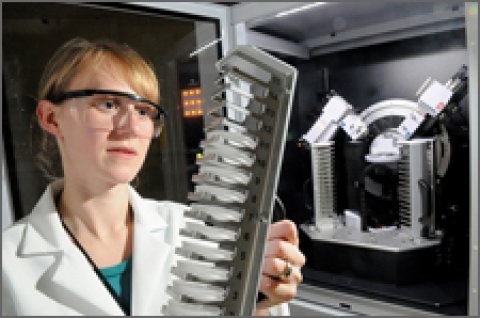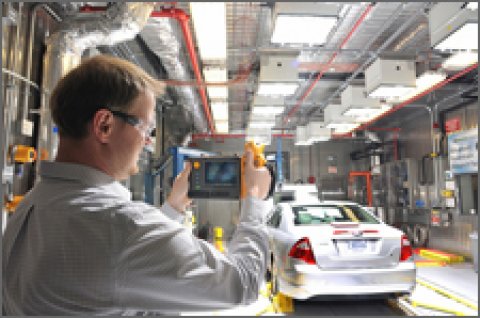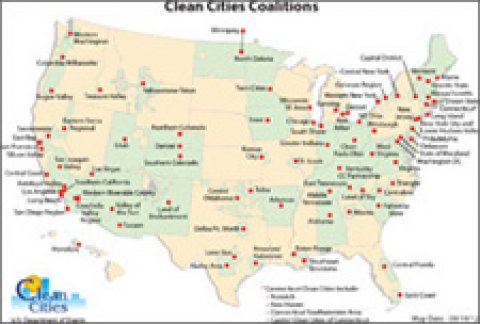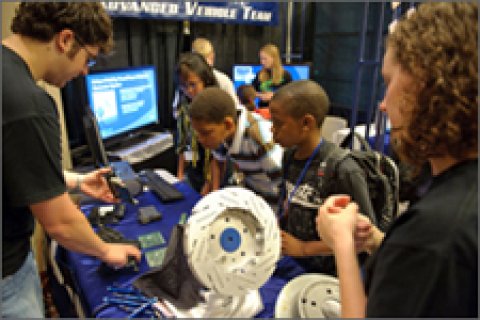We conduct work in four key areas to develop and deploy vehicle technologies that reduce the use of petroleum while maintaining or improving performance, power, and comfort. Research and development (R&D); testing and analysis; government and community stakeholder support; and education help people access and use efficient, clean vehicles that meet their transportation needs.
Research and Development of New Technologies
- Develop durable and affordable advanced batteries as well as other forms of energy storage.
- Improve the efficiency of combustion engines.
- Better understand the relationship between different vehicle systems and improve the efficiency of their interactions.
- Improve the power electronics and electrical machines that convert energy from the battery to the wheels of a vehicle and vice versa.
- Evaluate advanced petroleum fuels’ effects on combustion engines.
- Reduce the weight and improve the efficiency of vehicle materials while maintaining safety and reducing cost.
- Lower cost and increase efficiency of emission control technologies to minimize engine exhaust emissions.
- Minimize parasitic loss, energy lost to wind resistance, braking, and other non-engine functions.
- Improve lubricants that can reduce friction in vehicles already on the road.
- Research alternative fuels, particularly how biofuels interact with combustion engines and how to improve natural gas engines.
- Develop propulsion materials to meet the needs of advanced technologies, including materials for hybrid and electric drive systems, materials for high-efficiency combustion engines, materials for energy recovery systems and emission control, and materials by design.
- Strategize through research plans and roadmaps.
- Collaborate with industry to reduce petroleum use and emissions in light and heavy duty vehicles through the US DRIVE and 21st Century Truck partnerships.
- Conduct research through multi-disciplinary transportation research centers at the Department of Energy's National Laboratories.
- Distribute funding to support projects that remove technical and cost barriers to achieving advanced vehicle technologies.
Testing and Analysis
- Model, test, and validate vehicle components within virtual systems before they are used in actual vehicles.
- Collect laboratory and on-road data from advanced vehicles to improve our understanding of their performance.
- Conduct statistical research on energy use and transportation with national laboratories and other federal agencies.
- Provide software tools to industry for vehicle simulation, technology evaluation, economic modeling, and transportation emissions measurement.
Government and Community Stakeholder Support
- Support local voluntary actions to reduce petroleum use in transportation through Clean Cities.
- Manage covered vehicle fleets that are required to use alternative fuels through the State and Alternative Fuel Provider Fleet Program.
- Provide fuel efficiency and alternative fuel information to consumers and businesses through FuelEconomy.gov and the Alternative Fuels Data Center.
- Provide the public with information on the Program's budget.
Education
- Encourage interest in and understanding of advanced vehicle technologies among university students through the EcoCar3 Advanced Vehicle Competitions.
- Expand universities' capacity for education in advanced vehicle technologies through the Graduate Automotive Technology Education Centers of Excellence.





